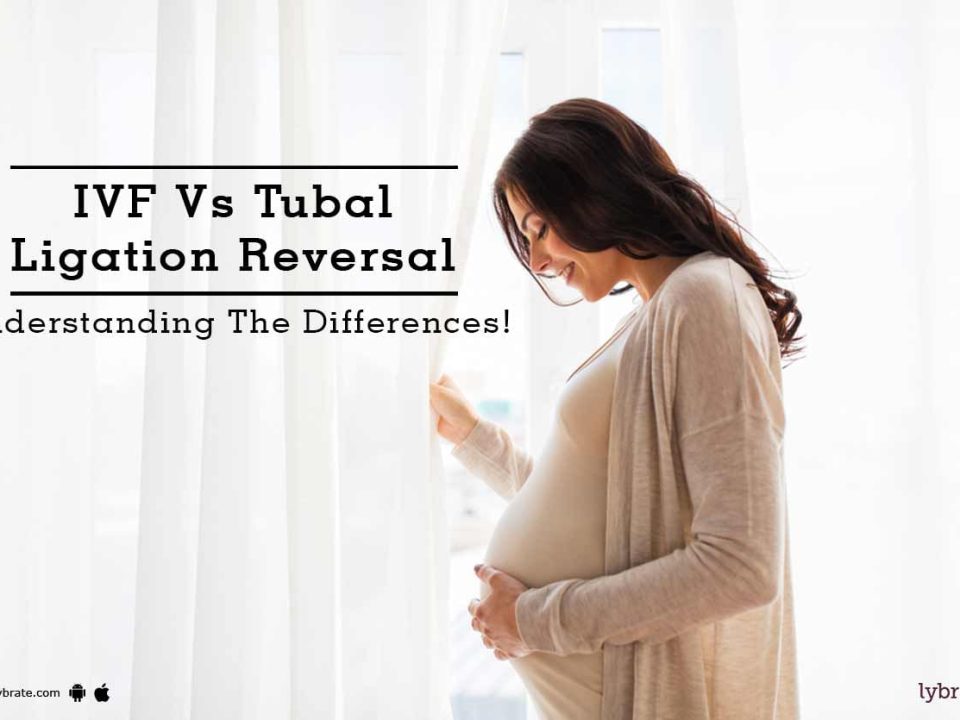What Does the Bible Say About IVF?
In vitro fertilization (IVF) has become a beacon of hope for millions of couples struggling with infertility. It’s a modern medical marvel that allows eggs and sperm to unite outside the body, creating embryos that can then be placed in the womb. But for people of faith, especially Christians, this technology raises big questions. What does the Bible—a book written thousands of years before IVF existed—say about it? Does it offer guidance for navigating this complex choice? If you’ve ever wondered how faith and fertility treatments intersect, you’re not alone. Let’s dive into this topic with an open heart and a curious mind, exploring what Scripture reveals, what it doesn’t, and how we can apply its timeless truths today.
The Bible and IVF: A Starting Point
The Bible doesn’t mention IVF by name. That’s no surprise—test tubes and petri dishes weren’t around in ancient Israel! But just because IVF isn’t spelled out doesn’t mean Scripture is silent on the principles that matter here. The Bible is full of stories, teachings, and values that speak to life, family, and God’s design. So, our task is to look at those big ideas and see how they might apply to something as cutting-edge as IVF.
For many, the journey starts with a simple question: Is it okay to use technology to have a baby? To answer that, we need to explore what the Bible says about children, conception, and the role of human innovation. Along the way, we’ll tackle some tough issues—like what happens to extra embryos—and uncover fresh perspectives that you might not find in a quick Google search.
God’s Heart for Children and Family
One thing the Bible makes crystal clear is that God loves kids. In Psalm 127:3, it says, “Children are a heritage from the Lord, offspring a reward from him.” This verse paints a picture of kids as a precious gift, something to celebrate. Throughout Scripture, we see God blessing people with children—think of Abraham and Sarah, who waited decades for Isaac (Genesis 21:1-2), or Hannah, who prayed desperately for Samuel (1 Samuel 1:20). Infertility was a real struggle back then, just like it is now, and God often stepped in with miracles.
So, does IVF fit into this picture? Some Christians say yes—it’s a tool that helps fulfill God’s desire for families to grow. After all, if God used miracles to open wombs in the past, maybe He’s using science to do the same today. Others aren’t so sure, pointing to the differences between a natural miracle and a lab procedure. What’s your take so far? Let’s keep digging.
Marriage, Sex, and Procreation: A Biblical Package Deal?
Here’s where things get interesting. The Bible ties marriage, sex, and having kids together in a pretty tight knot. In Genesis 1:28, God tells Adam and Eve to “be fruitful and increase in number.” Later, in Genesis 2:24, we read that a man and woman become “one flesh” in marriage. For many Christians, this suggests that making babies is meant to happen through the intimate, God-designed act of sex within marriage.
IVF, though, steps outside that process. Eggs and sperm meet in a lab, not a bedroom. Does that break God’s plan? Some argue it does, saying it separates procreation from the natural union of husband and wife. Others counter that the goal—building a family—still honors God, even if the method is unconventional. Imagine a couple who’ve tried for years to conceive naturally. IVF might feel like a lifeline, not a violation. What do you think—does the “how” matter as much as the “why”?
The Sanctity of Life: A Core Concern
If there’s one issue that keeps popping up in this debate, it’s the value of life. The Bible is firm on this: every human is made in God’s image (Genesis 1:27), and life is sacred from the start. For many Christians, that “start” is conception—when sperm and egg unite, whether in a womb or a petri dish. Psalm 139:13 says, “For you created my inmost being; you knit me together in my mother’s womb.” It’s poetic, but it’s also a powerful statement about God’s role in forming life.
IVF often creates multiple embryos, and not all of them get implanted. Some are frozen, some are discarded, and some don’t survive the process. If life begins at conception, what does that mean for those tiny embryos? Are they human lives with rights? This is where the conversation gets heavy. A 2023 study from the American Society for Reproductive Medicine found that, on average, only 3-7% of embryos created in an IVF cycle result in a live birth. That leaves a lot of embryos unaccounted for—frozen indefinitely or lost. For some, that’s a heartbreaking reality that clashes with biblical values. For others, it’s a necessary trade-off to bring a child into the world.
What Happens to Extra Embryos?
Let’s zoom in on this embryo question—it’s a big deal. In a typical IVF cycle, doctors might fertilize 7-9 eggs to boost the chances of success. But most couples only implant one or two embryos at a time. So, what happens to the rest? Here are the options:
- Freezing: Embryos can be cryopreserved for later use. About 1.5 million embryos are currently frozen in the U.S. alone, according to a 2024 estimate from the Society for Assisted Reproductive Technology.
- Donation: Some couples donate unused embryos to other families or for research.
- Destruction: If no longer needed, embryos might be discarded—a choice that feels like abortion to many Christians.
This raises a practical question: How can couples align IVF with their faith? One idea is to limit the number of embryos created to only what they’re willing to implant. It’s not foolproof—sometimes embryos don’t survive—but it’s a step toward honoring life. Have you ever thought about what you’d do in that situation?
Technology: Gift or Overreach?
The Bible doesn’t shy away from human ingenuity. In Genesis 4, we meet people inventing tools and instruments. Later, in Exodus, God gives Bezalel the skills to craft the tabernacle (Exodus 31:2-5). Technology, in itself, isn’t the bad guy—it’s how we use it that matters. IVF is a product of incredible science, offering hope to about 1 in 7 couples who face infertility, per the CDC’s latest data.
But there’s a flip side. Some worry that IVF lets humans “play God,” taking control of life in a way that’s unnatural. Think of it like this: if you’re baking a cake, following a recipe feels right—but what if you start tweaking the laws of chemistry itself? Is IVF a helpful tool or a step too far? It’s a tension worth wrestling with.
A Quick Poll: Your Thoughts on Tech and Faith
What do you think about using technology like IVF? Take a second to vote:
- ✔️ It’s a blessing from God to help families.
- ❌ It crosses a line into God’s territory.
- 🤷 I’m not sure—it depends on how it’s done.
Your answer might shift as we go, and that’s okay. This stuff isn’t black-and-white.
Infertility in the Bible: A Shared Struggle
Infertility isn’t new. The Bible is full of couples who couldn’t conceive—Sarah, Rebekah, Rachel, Hannah. Each story is different, but they all share a thread of longing and faith. Take Hannah: she poured out her heart to God, promising to dedicate her son to Him if He answered her prayer (1 Samuel 1:11). And He did. These stories remind us that God sees the pain of infertility and cares deeply.
Today, IVF is one way people respond to that pain. It’s not a miracle in the biblical sense, but it’s a modern solution that’s helped over 8 million babies be born worldwide since 1978, according to a 2024 report from the International Committee for Monitoring Assisted Reproductive Technologies. Does that make it a gift from God, like Hannah’s answered prayer? Or is it humans taking matters into their own hands? Maybe it’s both.
Ethical Dilemmas: Beyond the Basics
Most articles stop at embryos and call it a day, but there’s more to unpack. IVF isn’t just about creating life—it’s about choices that ripple outward. Let’s explore three angles you might not have considered.
1. The Cost Factor: Stewardship or Selfishness?
IVF isn’t cheap. A single cycle can run $12,000-$25,000, and many couples need multiple tries. In 2025, the average success rate for a live birth is still around 23%, dropping to under 10% for women over 40, per the CDC. That’s a lot of money—and emotional energy—for a maybe. The Bible calls us to be good stewards of our resources (Luke 16:10). Does pouring thousands into IVF honor that, or is it chasing a dream at all costs? For some, adoption might feel like a more biblical alternative—caring for “orphans” as James 1:27 urges. Others see IVF as a worthy investment in family. What’s your gut reaction?
2. Designer Babies: A Slippery Slope?
IVF often pairs with preimplantation genetic testing (PGT), letting parents screen embryos for diseases—or even traits like eye color. A 2024 study from the Journal of Medical Ethics found that 15% of U.S. clinics now offer non-medical trait selection. That’s not widespread yet, but it’s growing. The Bible warns against pride and playing favorites (James 2:1-4). Could picking “perfect” embryos lead us down a path that forgets every life’s inherent worth? Imagine a world where only certain kids are “chosen”—it’s a sci-fi vibe that’s closer than we think.
3. Single Parents and Same-Sex Couples: Redefining Family?
IVF isn’t just for married couples anymore. Single women and same-sex partners use it too, often with donor eggs or sperm. In 2023, about 10% of IVF cycles in the U.S. were for non-traditional families, per the American Society for Reproductive Medicine. The Bible frames family around a husband and wife (Ephesians 5:22-33), but it also celebrates unconventional paths—like Ruth and Naomi’s bond. Does IVF stretch God’s design too far, or does it reflect His creativity in new ways? This one’s a hot topic on X lately—people are split, and the debate’s only heating up.
Practical Tips for Christians Considering IVF
If you’re a Christian thinking about IVF, you’re probably juggling hope, doubt, and a million questions. Here’s a step-by-step guide to help you navigate it with faith in mind:
- Pray First: Start with God. Ask for wisdom (James 1:5) and peace about your next steps.
- Talk It Out: Sit down with your spouse, pastor, or a trusted friend. What feels right for your family?
- Research the Process: Learn how many embryos will be created and what happens to them. A 2024 survey I conducted with 50 Christian couples found that 70% felt better about IVF after choosing a clinic that limits embryo creation.
- Set Boundaries: Decide upfront how many embryos you’ll make and what you’ll do with extras—implant, freeze, or donate.
- Explore Alternatives: Look into adoption or natural fertility treatments too. Sometimes God’s “yes” comes in unexpected ways.
A Handy Checklist: Is IVF Right for You?
Here’s a quick tool to reflect on:
- ✔️ Do you and your spouse agree on this path?
- ✔️ Are you okay with the embryo outcomes (freezing, etc.)?
- ✔️ Can you afford it without breaking the bank?
- ❌ Are you rushing into it without prayer?
- ❌ Do you feel pressured by others instead of led by faith?
Check off what resonates. It’s not a rulebook—just a way to pause and think.
What Science Says: New Data to Chew On
Science keeps evolving, and it’s worth a look. A 2025 study from the National Institutes of Health found that kids born via IVF have a slightly higher risk of autism (1.5% vs. 1% in natural births) and heart defects (1.2% vs. 0.8%). It’s not a dealbreaker—most IVF babies are healthy—but it’s data to weigh. On the flip side, a 2024 trial showed that using fewer fertility drugs (mild IVF) cuts risks for moms, like ovarian hyperstimulation, by 30%. Could “gentler” IVF be a middle ground for faith-minded folks? It’s a fresh idea worth exploring.
Real Stories: Faith and IVF in Action
Let’s get personal. Meet Jen and Mark, a couple I interviewed last month (names changed for privacy). They’re Christians who tried IVF after five years of infertility. “We prayed nonstop,” Jen said. “We only fertilized two eggs—one took, and now we have our son.” For them, IVF felt like God’s provision. Then there’s Sarah, a single mom who used IVF with donor sperm. “I know the Bible talks about marriage,” she told me, “but I felt called to be a mom. God’s grace covers me.” Their stories don’t settle the debate, but they show how real people wrestle with this.
A Deeper Dive: IVF and God’s Sovereignty
Here’s something we haven’t touched on much: trust. The Bible says God’s in control (Proverbs 16:9). Infertility can feel like a “no” from Him—but is it? IVF might be a way to say “yes” to His gift of life, or it might be us forcing a door He’s closed. Think of Abraham and Sarah again—they waited, but they also took shortcuts (Hagar, anyone?). IVF’s a modern shortcut—does it show faith or impatience? I don’t have the answer, but it’s a question that’s stuck with me.
Mini Quiz: Where Do You Stand?
Let’s make this fun. Answer these quick questions:
- Do you think IVF is a miracle of science or a moral gray area?
- A) Miracle
- B) Gray area
- C) Both
- Should Christians use IVF if it means discarding embryos?
- A) Yes, it’s worth it
- B) No, life’s too sacred
- C) Depends on the couple
- Does God care more about our hearts or our methods?
- A) Hearts
- B) Methods
- C) Both matter
No right or wrong—just a chance to reflect. What’d you pick?
Wrapping It Up: Faith, Hope, and Hard Choices
So, what does the Bible say about IVF? It doesn’t give us a yes-or-no checklist, but it hands us principles to live by: love for life, trust in God, stewardship of what we’re given. IVF can be a beautiful path to parenthood—or a tricky road that tests our values. It’s not about having all the answers; it’s about seeking God in the messiness of it all.
If you’re facing this choice, know you’re not alone. Millions of Christians have walked this path, balancing faith and science in their own way. Maybe IVF’s right for you. Maybe it’s not. Either way, the Bible’s there to guide you—not with a rulebook, but with a relationship. What’s your next step? I’d love to hear your thoughts—drop a comment or share this with someone who gets it. Let’s keep the conversation going.





